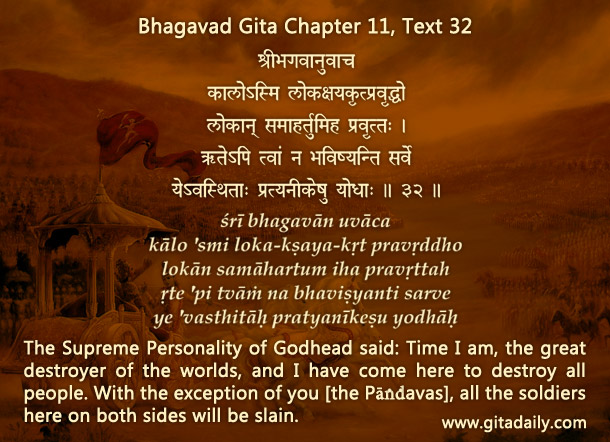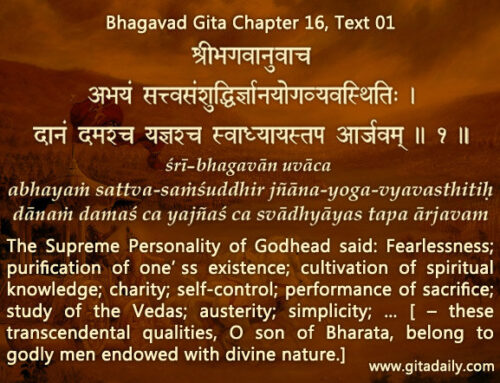When we see a huge cloud moving in the sky, we don’t often realize that it demonstrates how the subtler affects the grosser – the cloud is visible and it is huge, yet it is moved, and moved helplessly, by wind, which is invisible.
Similarly, time is a subtle yet formidable force that moves everything in this world. We are aware of the passage of time in terms of say morning transiting to afternoon to evening and so forth. But we are not so aware of the changes that the passage of time causes – it makes an erect person stooped, a smooth face wrinkled and a healthy body sickly.
More debilitating than the physical changes wrought by time are the ethical changes. The Bhagavad-gita (04.02) alerts us that by the formidable force of time, pure spiritual knowledge becomes increasingly inaccessible.
We make resolutions for self-improvement, but the passage of time erodes our resolution to stick to our resolution. With time, the same temptation that would earlier have elicited a firm no now elicits a maybe. Such erosion of our ethical resolutions is even more probable when the overall time – the cultural milieu of that particular age – is excessively materialistic and so is ethically corrosive. The Gita (11.32) declares that time is a manifestation of Krishna that functions as the destroyer of everything.
Significantly however, Krishna manifests also to counter this destructive effect. Though physical deterioration is inevitable, ethical degradation isn’t. If we connect with Krishna through the practice of bhakti-yoga, he grants us higher intelligence and higher pleasure, both of which boost our resolution to stay connected with him – and not just stay connected, but also deepen that connection.
By that divine connection, we become ethically protected and elevated, till our consciousness becomes spiritualized and we eventually attain Krishna’s eternal abode, beyond time’s erosive effects.
To know more about this verse, please click on the image
Explanation of article:

Podcast:




KRISHNA is the TIME that saves the BHAKTA from colossal damage by HIS guidance